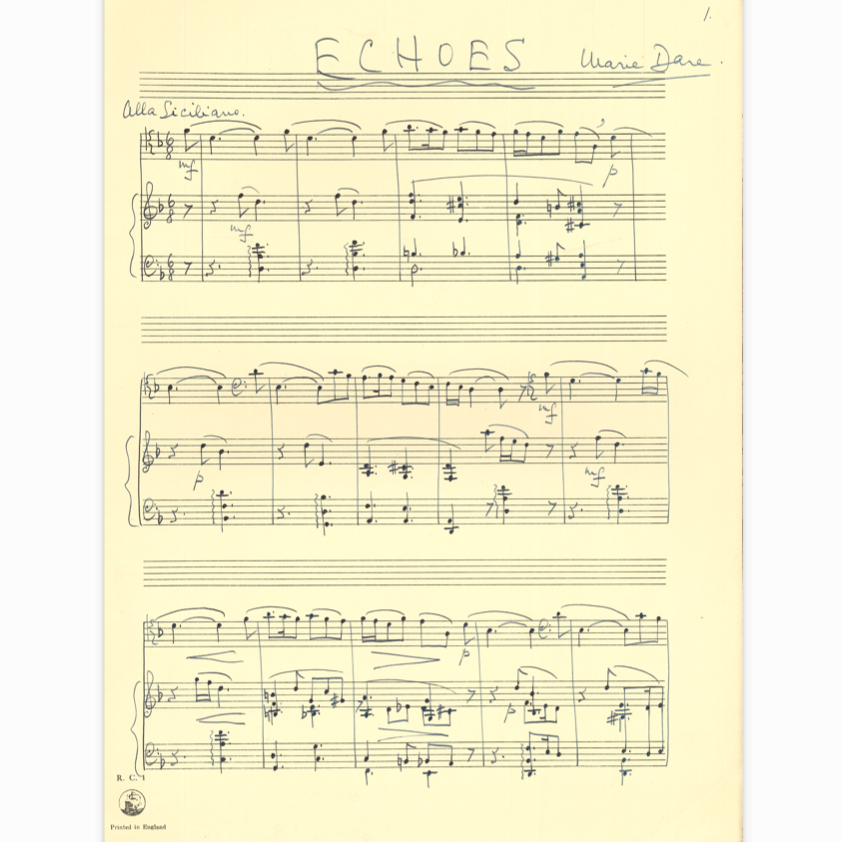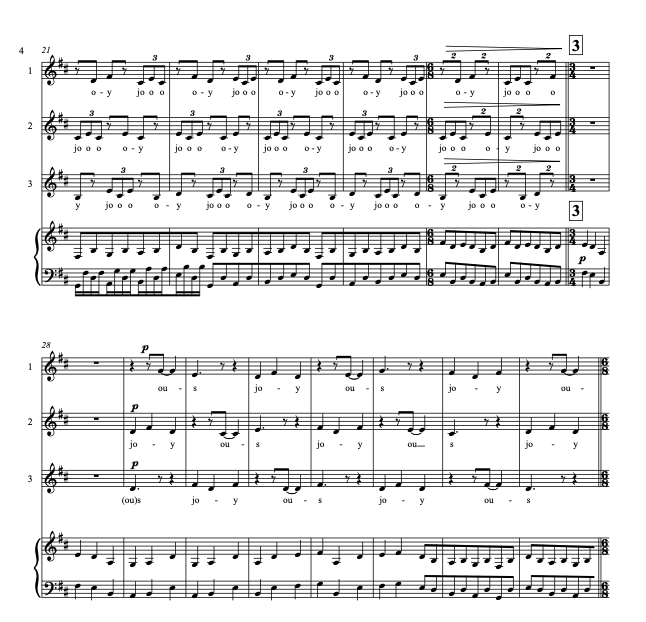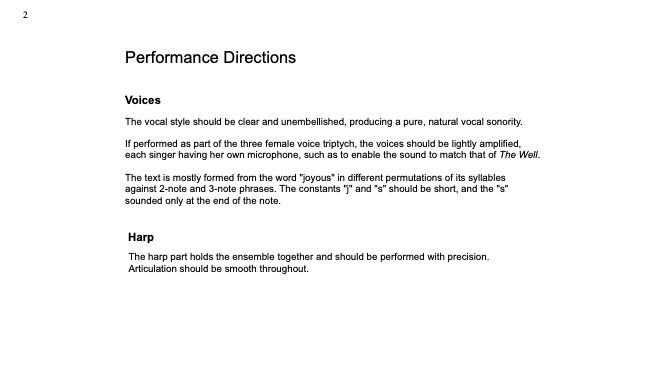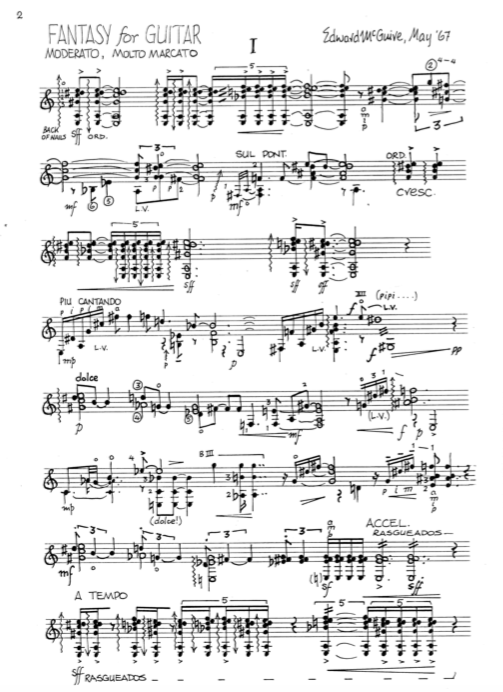Rory Boyle: Phaethon's Dancing Lesson (Piano Trio No.2) [Download]
13-minute piano trio composed in 2002.
Computer typeset score and parts (61pp total) saved as pdf file for immediate download.
Programme note
In the wonderful translation by Ted Hughes, Ovid tells the tale of Phaethon who brags to his friends about being the son of Phoebus the sun god although his friends don?t believe him and tell him he is mad to think such a ridiculous thing. Phaethon complains to his mother, Clymene who reassures him that he is the son of Pheobus but that he should go and ask his father himself if he is not satisfied. This Phaethon does and, in order to prove his parentage, Phoebus promises to give him anything he desires. In the petulance of youth Phaethon asks for one whole day driving the chariot of the sun. Phoebus is appalled at this folly and tries to dissuade him by explaining that no mortal could handle the reins, but he has made a promise and reluctantly agrees. Naturally the wretched lad has no control over the powerful chariot and four, and the violent journey causes havoc and ends in spectacular oblivion. I thought of what a spectacle this horrifying ride must have made in the sky if viewed from earth as well as trying to imagine the emotions which Phaethon might have experienced ranging from utter terror to a sort of drug-induced elation. To me it might have appeared rather like a grotesque terpsichorean sequence and this short work for piano trio comprises five dances which are played without a break. The fast outer sections are both Dithyrambs, wild Greek dances, which use the same thematic material as, do the two inner slower dances (Waltz and Saraband). The central Tango is based on a serial row which allows for some jazz chords in the harmonies. It was commissioned by the Schubert Ensemble and was written in the last quarter of 2002.
Rory Boyle 2002
13-minute piano trio composed in 2002.
Computer typeset score and parts (61pp total) saved as pdf file for immediate download.
Programme note
In the wonderful translation by Ted Hughes, Ovid tells the tale of Phaethon who brags to his friends about being the son of Phoebus the sun god although his friends don?t believe him and tell him he is mad to think such a ridiculous thing. Phaethon complains to his mother, Clymene who reassures him that he is the son of Pheobus but that he should go and ask his father himself if he is not satisfied. This Phaethon does and, in order to prove his parentage, Phoebus promises to give him anything he desires. In the petulance of youth Phaethon asks for one whole day driving the chariot of the sun. Phoebus is appalled at this folly and tries to dissuade him by explaining that no mortal could handle the reins, but he has made a promise and reluctantly agrees. Naturally the wretched lad has no control over the powerful chariot and four, and the violent journey causes havoc and ends in spectacular oblivion. I thought of what a spectacle this horrifying ride must have made in the sky if viewed from earth as well as trying to imagine the emotions which Phaethon might have experienced ranging from utter terror to a sort of drug-induced elation. To me it might have appeared rather like a grotesque terpsichorean sequence and this short work for piano trio comprises five dances which are played without a break. The fast outer sections are both Dithyrambs, wild Greek dances, which use the same thematic material as, do the two inner slower dances (Waltz and Saraband). The central Tango is based on a serial row which allows for some jazz chords in the harmonies. It was commissioned by the Schubert Ensemble and was written in the last quarter of 2002.
Rory Boyle 2002
13-minute piano trio composed in 2002.
Computer typeset score and parts (61pp total) saved as pdf file for immediate download.
Programme note
In the wonderful translation by Ted Hughes, Ovid tells the tale of Phaethon who brags to his friends about being the son of Phoebus the sun god although his friends don?t believe him and tell him he is mad to think such a ridiculous thing. Phaethon complains to his mother, Clymene who reassures him that he is the son of Pheobus but that he should go and ask his father himself if he is not satisfied. This Phaethon does and, in order to prove his parentage, Phoebus promises to give him anything he desires. In the petulance of youth Phaethon asks for one whole day driving the chariot of the sun. Phoebus is appalled at this folly and tries to dissuade him by explaining that no mortal could handle the reins, but he has made a promise and reluctantly agrees. Naturally the wretched lad has no control over the powerful chariot and four, and the violent journey causes havoc and ends in spectacular oblivion. I thought of what a spectacle this horrifying ride must have made in the sky if viewed from earth as well as trying to imagine the emotions which Phaethon might have experienced ranging from utter terror to a sort of drug-induced elation. To me it might have appeared rather like a grotesque terpsichorean sequence and this short work for piano trio comprises five dances which are played without a break. The fast outer sections are both Dithyrambs, wild Greek dances, which use the same thematic material as, do the two inner slower dances (Waltz and Saraband). The central Tango is based on a serial row which allows for some jazz chords in the harmonies. It was commissioned by the Schubert Ensemble and was written in the last quarter of 2002.
Rory Boyle 2002



![Marie Dare: Echoes [download]](https://images.squarespace-cdn.com/content/v1/5f3690f6995b741710ab4824/1637333301840-1WD8GT41AYVI9EYI80LB/echoes-cover.png)

![Nicky Hind: The Joyous [download]](https://images.squarespace-cdn.com/content/v1/5f3690f6995b741710ab4824/1699546047199-YH0DV6T7N96RISGNQBYF/The+Joyous.png)


![Janet Beat: Seascape with Clouds [download]](https://images.squarespace-cdn.com/content/v1/5f3690f6995b741710ab4824/1650638092137-4QHZMFR3DTWZ42KVXMPA/cover.png)

![Edward McGuire: Morag McCalman of Ballygrant [download]](https://images.squarespace-cdn.com/content/v1/5f3690f6995b741710ab4824/1614181040625-ECONBAHS07YIH5F61F5X/Mcguire_MoragMcCalman.png)

![Edward McGuire: Fantasy for Solo Guitar [download]](https://images.squarespace-cdn.com/content/v1/5f3690f6995b741710ab4824/1657724474551-N5ZXLMEK87AHF7J0OQEJ/shop+template+-+strings+%281%29.jpg)
